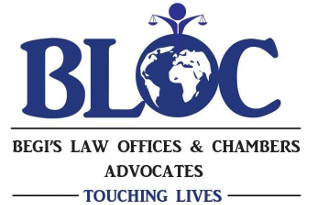Hotel Law: What you Should Know
INTRODUCTION

Many of us make use of hotel services regularly. This is more so during the festive season. We however are almost always oblivious of the intricate laws that relate to hotel services in Kenya. We often tend to assume that the general consumer protection laws would cover hotels and the hospitality industry.
The purpose of this article is to introduce you, to the intricate and unique provisions in the law that may affect you as a guest while enjoying hospitality services from a hotel.
A CONSTITUTIONAL BASIS
Your rights as a hotel client, derives origin from the Constititution of Kenya. Article 46 of the Constitution of Kenya provides that you as a consumer, have the following rights:
- To goods and services of a reasonable quality
- To information necessary to gain full benefit from goods and services
- To protection of your health, safety and economic interests
- To compensation for loss or injury from defects in goods or services.
These rights fit squarely to the benefit of a client receiving goods (in terms of foods and beverages) from a hotel or services (such as accomodation). When a hotel or restaurant serves you food that later on makes you fall sick, they are violating your right to goods and services of reasonable quality. The same applies when you book accomodation and discover that the accomodation is substandard.
As a consumer of hotel services, should you suffer any loss or injury relating to your stay in a hotel, you are entitled to claim compensation for the loss. This is in addition to making any other claim under the law of negligence. In Kenya however, many consumers prefer to only proceed to court for negligence claims. Our advice is that any hotel client who suffers injury or loss, can in addition to any other cause of action, also sue on the basis of violation of consumer rights.
The advantage of instituting a constitutional claim for violation of consumer rights is that such a case will be heard in the High Court. The High Court of Kenya has unlimited jurisdiction in awarding compensation. This is unlike a Magistrate’s Court which would have monetary limits in awarding compensation for negligence claims.
Your rights as a consumer under the Constitution are given effect by the Consumer Protection Act which also provides for full compensation for any money paid, in the event of a defect in goods or services that have been paid for by a consumer.
OCCUPIER’S LIABILITY

In addition to the rights provided for by the Constitution of Kenya and the Consumer Protection Act, hotels and restaurants also fall within the purview of the Occupier’s Liability Act.
Under Section 3 of the Occupier’s Liablity Act, an occupier (in this case the owner of the hotel or restaurant) has a duty to all visitors to “…take such care as in all the circumstances of the case is reasonable to see that the visitor will be reasonably safe in using the premises for the purposes for which he is invited or permitted by the occupier to be there.“
In discharging its duty to care under this Act, all hotels and restaurants are required to take into account several factors such as the fact that children tend to be less careful as compared to adults. To this end, should any damage injury or loss happen a hotel will be liable to a suit under the Occupier’s Liablity Act for violation of the Act and also for breach of contract.
CONCLUSION AND RECOMMENDATION

In conclusion, as a client, the hotel or restaurant owes you a duty not just to provide goods and services of reasonable quality, but also to prevent any loss or harm. In order to fully benefit from the provisions of the law, it is important to keep documentary evidence showing the existence of a hotel-client relationship. This includes receipts and any official document that the hotel may give showing your status as a visitor. At Begi’s Law we are here to help touch your life by protecting your interests as a consumer of hotel services.

